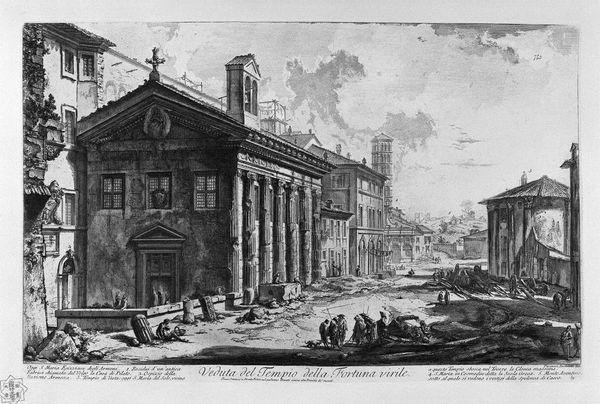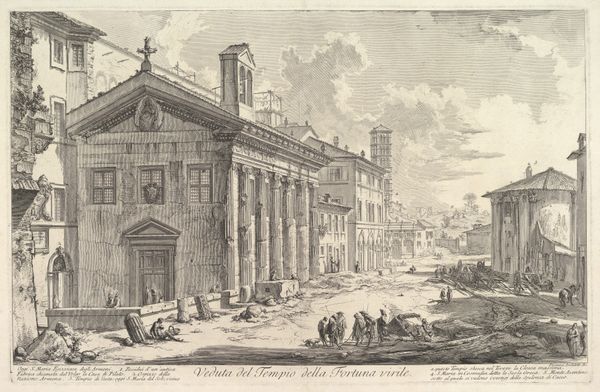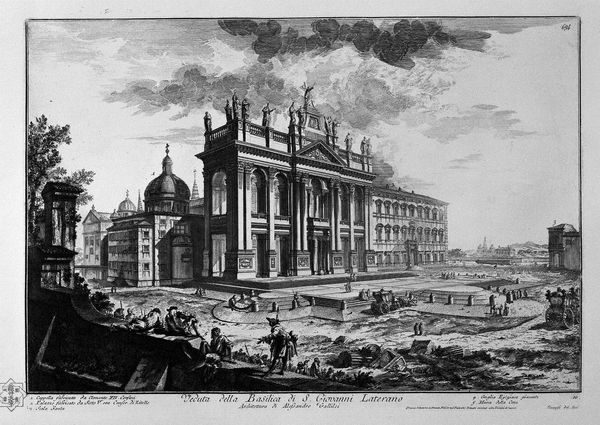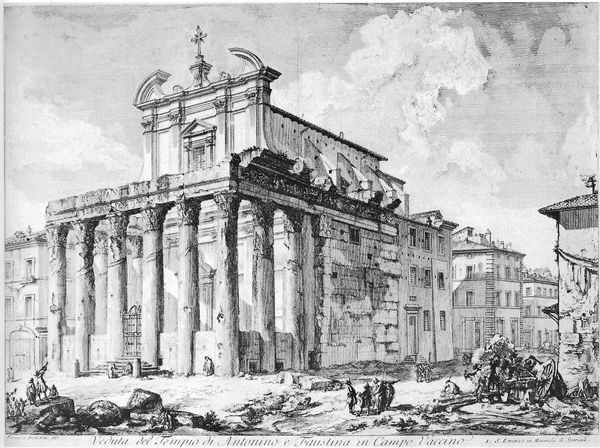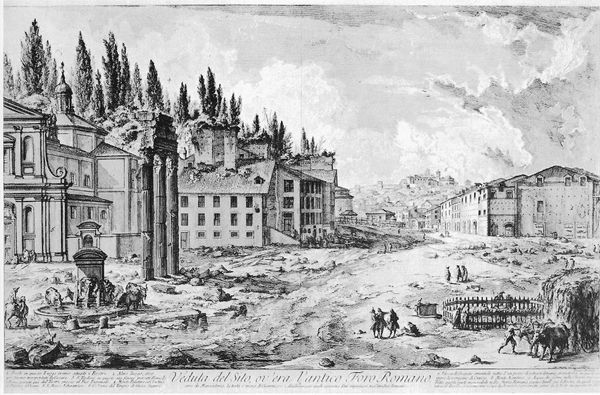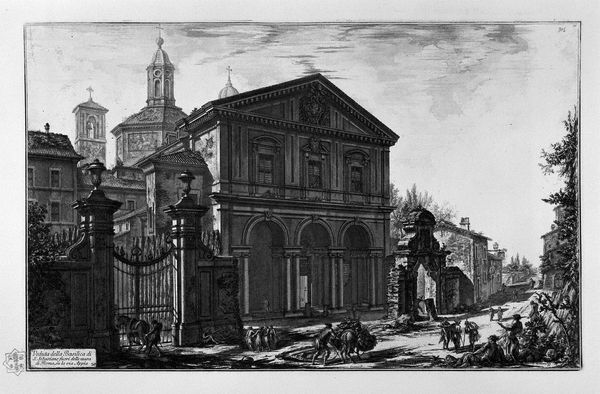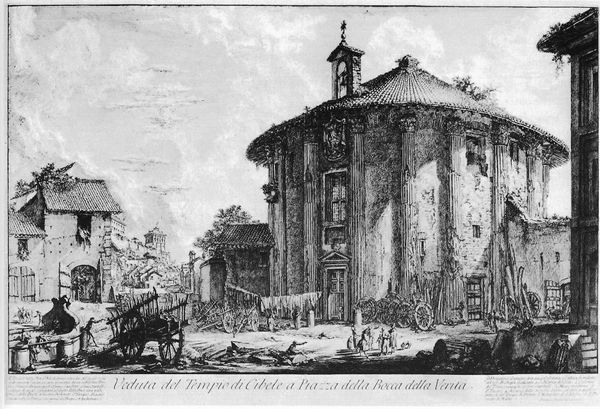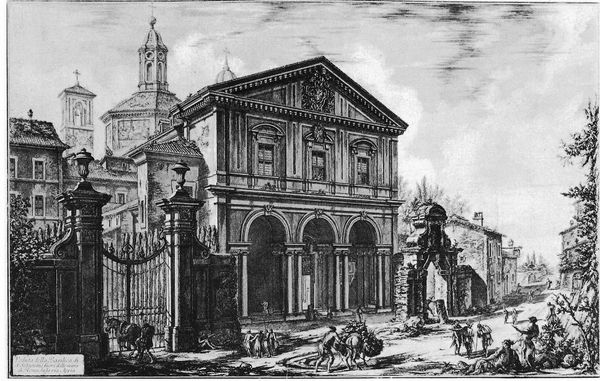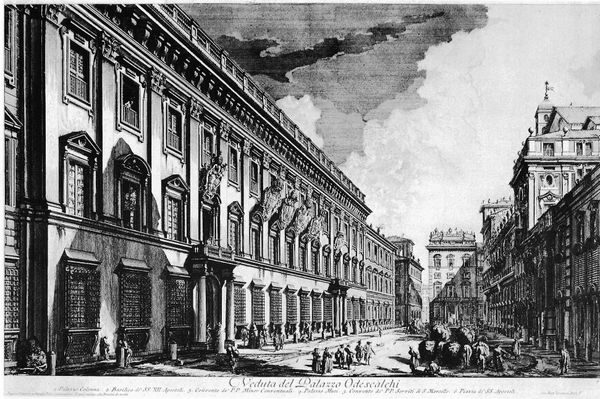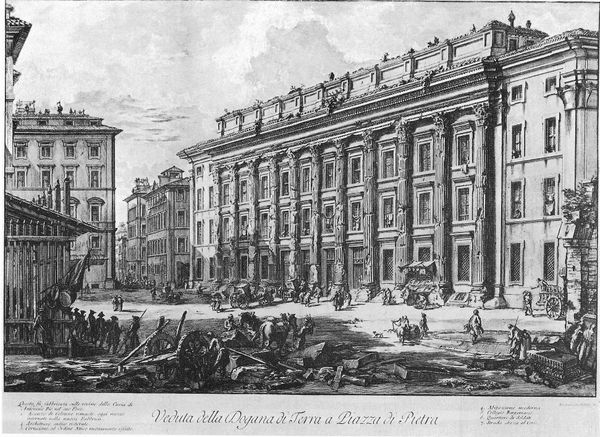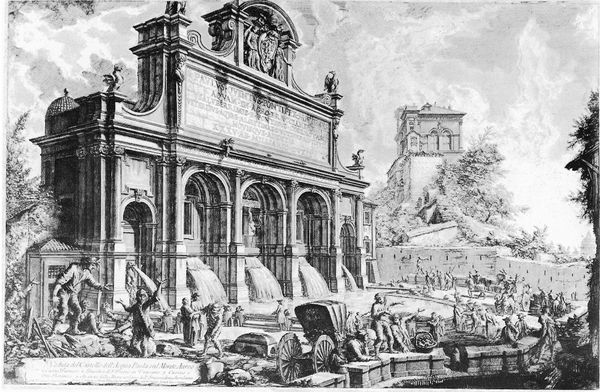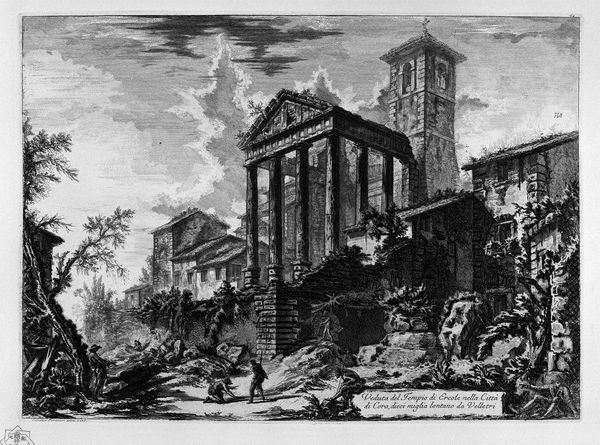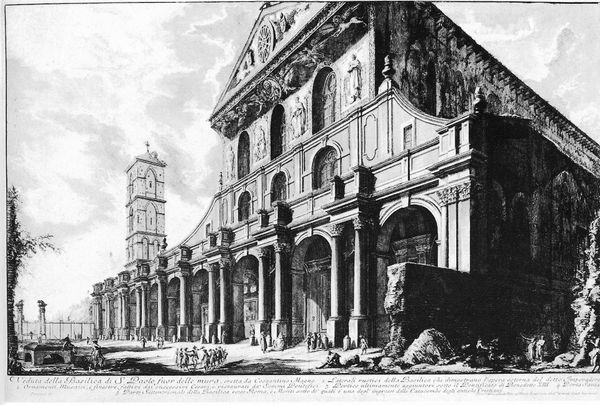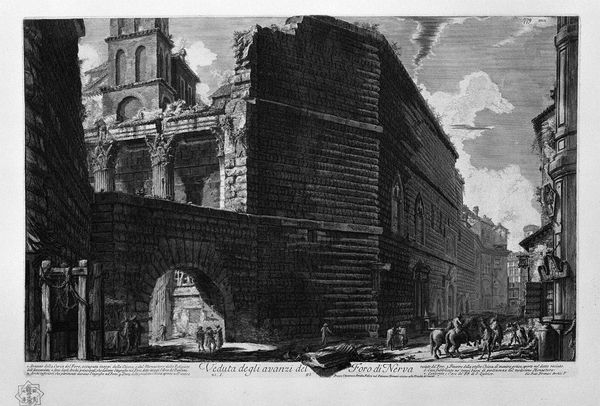
print, etching, engraving, architecture
# print
#
etching
#
landscape
#
romanesque
#
geometric
#
classicism
#
column
#
cityscape
#
history-painting
#
academic-art
#
engraving
#
architecture
Copyright: Public domain
This is one of Giovanni Battista Piranesi’s many etchings of Rome, made in the mid-18th century. Piranesi sold these ‘vedute’ or ‘views’ to well-to-do European travelers as souvenirs of the Grand Tour. Here, the Temple of Fortuna Virilis is rendered with the sharp lines and dramatic contrasts characteristic of Piranesi. Note how the print emphasizes the grandeur of ancient Roman architecture, even as it incorporates more recent buildings. This juxtaposition of historical periods speaks to Rome's layered history and to the ways in which successive generations have built upon and transformed the ancient city. Piranesi’s Rome was a city being actively excavated and studied, and the vogue for classical antiquity was bolstered by institutions such as the French Academy and the British School. Piranesi’s etchings fueled and capitalized on this interest. To understand this image fully, we might consult guidebooks of the period, architectural treatises, and the artist’s biography to shed light on the complex interplay of art, commerce, and cultural identity in 18th-century Rome.
Comments
No comments
Be the first to comment and join the conversation on the ultimate creative platform.
